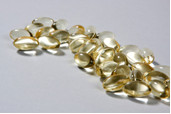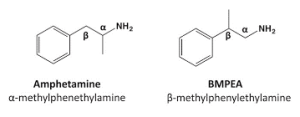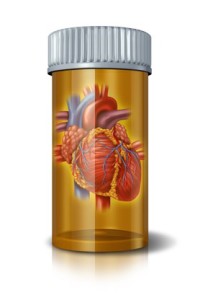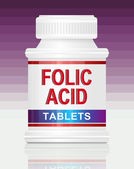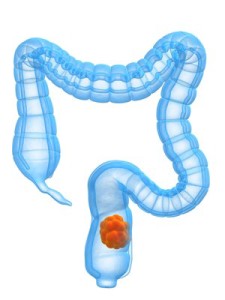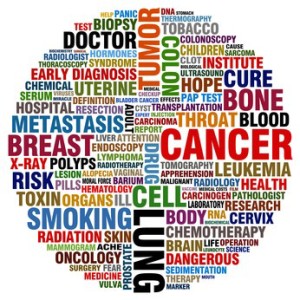Does Fish Oil Build Muscle?
Author: Dr. Stephen Chaney
 Omega-3-rich fish oil supplements have attracted their share of controversy in recent years, but there appear to be lots of reasons to make sure that you get enough omega-3s from your diet.
Omega-3-rich fish oil supplements have attracted their share of controversy in recent years, but there appear to be lots of reasons to make sure that you get enough omega-3s from your diet.
There is actually pretty good evidence that omega-3s offer a natural approach for people who wish to lower their blood pressure (https://www.chaneyhealth.com/healthtips/do-omega-3s-lower-blood-pressure/) or heart attack risk (https://www.chaneyhealth.com/healthtips/fish-oil-really-snake-oil/). There is also some evidence that omega-3s may be important for brain development in infants (J Protzko et al, Perspectives on Psychological Science, 8: 25-40, 2013), for mental performance in children (https://www.chaneyhealth.com/healthtips/omega-3s-improve-reading-skills/) and for preventing cognitive decline in the elderly (https://www.chaneyhealth.com/healthtips/omega-3s-slow-cognitive-decline/).
If the latest headlines are to be believed, we can add preventing age-related muscle loss to the benefits of an omega-3-rich diet.
Why Is Age-Related Loss of Muscle Mass a Problem?
The term for age-related muscle loss is sarcopenia, and it is a big problem for older adults. After age 50 we lose 1-2% of our muscle mass each year. As you might expect, our strength declines as well. Each 1% loss of muscle mass translates into about 1.5% loss in strength. That means after age 50 we lose 1.5% of our muscle strength each year, and once we hit 60 the rate of loss increases to around 3% per year.
That may not sound like much on an annual basis, but it adds up over time. With a little bit of higher math you can calculate that you could easily have lost 45% of your muscle strength by the age of 70 and a whopping 75% by the age of 80. At that point even the simplest physical activities – lifting a grandchild or a bag of groceries – can become challenging. That loss of strength also contributes to a loss of balance that can lead to debilitating falls.
The most effective way of preventing age-related muscle loss is regular resistance training, especially when coupled with adequate intake of protein and leucine (https://www.chaneyhealth.com/healthtips/protein-needs-for-older-adults/). However, resistance training is hard work, so many older adults gravitate to quick fixes like testosterone, growth hormone, or DHEA – even though each of those treatment regimens have significant side effects and risks.
That’s why the recent headlines suggesting that a risk-free approach like omega-3 supplementation might increase muscle mass and strength in older adults is so enticing.
Do Omega-3s Prevent Age-Related Muscle Loss?
A previous study had suggested that omega-3 supplementation enhanced the effect of strength training in elderly women (Rodacki et al, AJCN, 95: 428-436, 2012). Although the mechanism of that effect is unclear, the authors of this study decided to go one step further. They asked if omega-3 fatty acids might prevent loss of muscle mass even in the elderly in the absence of a structured exercise program (Smith et al, AJCN, doi: 10.3945/ajcn.114.105833, 2015).
 The study consisted of 44 men and women age 60-85 (average age 69) who were not exercising on a regular basis. They were given either 4 gm of fish oil (containing 1.86 gm of EPA and 1.5 gm of DHA) or a placebo containing corn oil each day for 6 months. Muscle mass and four measures of muscle strength were performed at the beginning of the study and again at 6 months. The measures used were thigh muscle volume (a measure of muscle mass), hand grip strength, overall muscle strength (the maximum weight that the subject could lift in a single repetition for leg press, chest press, knee extension, and knee flexion) and isokinetic power (the power attained in knee extension and flexion exercises). The results were pretty impressive for the omega-3 group compared with the control group:
The study consisted of 44 men and women age 60-85 (average age 69) who were not exercising on a regular basis. They were given either 4 gm of fish oil (containing 1.86 gm of EPA and 1.5 gm of DHA) or a placebo containing corn oil each day for 6 months. Muscle mass and four measures of muscle strength were performed at the beginning of the study and again at 6 months. The measures used were thigh muscle volume (a measure of muscle mass), hand grip strength, overall muscle strength (the maximum weight that the subject could lift in a single repetition for leg press, chest press, knee extension, and knee flexion) and isokinetic power (the power attained in knee extension and flexion exercises). The results were pretty impressive for the omega-3 group compared with the control group:
- Thigh muscle volume (muscle mass) increased by 3.6%
- Handgrip strength increased by 6%.
- Overall muscle strength increased by 4%.
- Isokinetic power increased by 5.6%.
- Other than complaints about fishy breath, there were no adverse effects in the omega-3 group.
- The authors calculated that the increase in muscle mass and strength during 6 months of omega-3 supplementation was sufficient to offset 2-3 years of normal age-related muscle loss and strength loss.
- The increase in muscle mass and strength associated with omega-3 supplementation was less than can be attained from regular resistance exercise coupled with adequate protein intake. However, it was the same or greater than could be obtained from testosterone, growth hormone or DHEA – and didn’t have the risks associated with those treatments.
For example, a recent study has concluded that testosterone injections are associated with a significant risk of stroke, acute coronary syndromes, hospitalization and death (Layton et al, JAMA Internal Medicine, doi: 10.1001/jamainternmed.2015.1573).
The authors concluded ”Fish oil-derived omega-3 therapy slows the normal decline in muscle mass and function in older adults and should be considered a therapeutic approach for preventing sarcopenia and maintaining physical independence in older adults.”
Limitations of the Study
Before you all run out and stock up on fish oil supplements, I should point out that this study has several limitations.
- It is a very small study. It needs to be replicated by future studies.
- It used a very high dose of fish oil (4 gm/day). High doses are often used in an initial study like this one just to establish whether there is an effect worth further study. However, this study needs to be repeated at lower doses to see if this benefit of omega-3 supplementation is also seen at more physiological doses (500 – 1,000 mg) of omega-3s.
Because of these limitations, I am not yet ready to agree with the authors that omega-3 supplementation “…should be considered a therapeutic approach for preventing sarcopenia and maintaining physical independence in older adults.” This is an interesting finding that holds the promise of an inexpensive, risk-free, natural approach for maintaining muscle mass in older adults, but it needs to be verified by future studies before it can be widely recommended.
There are many reasons to supplement with omega-3s, but at this point in time I would definitely not recommend fish oil supplementation as an alternative to resistance exercise and adequate protein intake for older adults who wish to prevent age-related loss of muscle mass and strength.
However, the health risks of testosterone, growth hormone, and DHEA supplementation are significant. For someone who is absolutely set on pursuing an exercise-free solution to maintaining muscle mass and strength as they age, I would recommend omega-3 supplementation first rather one of the riskier alternatives.
The Bottom Line
- A recent study has suggested that omega-3 supplementation may prevent age-related loss of muscle mass and strength. The study was performed in both men and women age 60-85 who were not exercising on a regular basis.
- Omega-3 supplementation was less effective than regular resistance exercise coupled with adequate protein intake, but equal to or greater in effectiveness than testosterone, growth hormone, or DHEA treatment.
- This was a very small study and it used a very high dose of omega-3s. It is a promising finding because it represents an inexpensive, risk-free, natural approach for maintaining muscle mass in older adults, but it needs to be verified by future studies before it can be widely recommended.
- There are many good reasons to supplement with omega-3s, but at this point in time I would definitely not recommend fish oil supplementation as an alternative to resistance exercise and adequate protein intake for older adults who wish to prevent age-related loss of muscle mass and strength. Resistance training combined with adequate protein is a proven intervention. Omega-3 supplementation is not.
- However, the health risks of testosterone, growth hormone, and DHEA supplementation are significant. For someone who is absolutely set on pursuing an exercise-free solution to maintaining muscle mass and strength as they age, I would recommend omega-3 supplementation first rather one of the riskier alternatives. It might just work, and it is a lot less risky.
These statements have not been evaluated by the Food and Drug Administration. This information is not intended to diagnose, treat, cure or prevent any disease.





